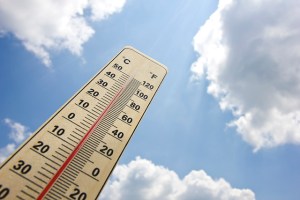If you have a mortgage, you need to have homeowners insurance. But despite its integral role in protecting your house and family, you still might have questions about how homeowners insurance actually works.
We spoke to Ashley Kehew, director of insurance at AAA Northeast, about some of the most frequently asked homeowners insurance questions to help provide some clarity on your policy.
I have recently added a small addition to my home. How does this impact my home insurance policy?
“Any addition to your home, even if small, will change your home’s replacement cost,” Kehew said.
Whenever you are planning significant upgrades or remodeling to your house, you should reach out to your insurance agent to update your policy accordingly. Something as simple as painting wouldn’t qualify, but adding a room or installing new kitchen cabinets would add value to your home. You want to ensure that your policy accurately reflects your home’s worth, allowing for the most comprehensive coverage.
What’s the difference between replacement cost and actual cash value?
“Replacement cost covers the expense to rebuild or replace your property in today’s world,” Kehew said. She gives the example of a TV you bought six years ago: It may not be worth more than $50 today, but it would certainly cost more to replace it. “Replacement cost coverage gets you a brand-new TV; it doesn’t factor in the depreciation of that 6-year-old TV.”
If you had actual cash value coverage, you’d get the actual value of that 6-year-old TV today — which certainly would not be enough to replace it. The same goes for home.
“An older roof or older siding with actual cash value coverage would receive a depreciated payout, whereas, replacement cost coverage would pay to replace your roof or siding fully.”
Why is my home insured for more than its market value?
In some instances, your coverage will exceed the market value of your home, especially if you have replacement cost coverage applied to your policy. Rather than adhering simply to the market value — the current purchase price of your home, replacement cost reflects what is necessary to rebuild your home in the event of a total loss.
“It’s common to see the replacement cost for a home exceed the market value,” Kehew said. “The replacement cost of a home takes into account many things, including debris removal, construction costs, materials and labor, which can all add up to be more than what your home would sell for in today’s market.”
If you’re unsure whether you have replacement cost or cash value stated in your policy, or want to change it, contact your insurance agent.
Is my property covered while I’m on vacation or away from my home?
Yes, of course. Your policy applies to your home even when you and your family are out. No matter whether you are down the street or on a European tour, your property is covered under your homeowners insurance.
“Most homeowners insurance will cover you anywhere in the world for things such as theft or damage from a covered peril,” for example, fire, Kehew said.
Do I need to buy additional coverage for certain high-value items, such as jewelry?
The answer to this one depends on your policy. Homeowners insurance typically has limitations when it comes to the liability for certain types of personal property.
“While standard policies have sublimits for items such as jewelry, the coverage type and amounts are limited. When you schedule an item, you are protected for so much more than the standard perils. You have full protection for things such as mysterious disappearance, breakage or even a stone falling out!” said Kehew.
If you have any questions about a specific type of valuable such as jewelry, furs, cash, silverware or firearms, contact your insurance agent to determine your policy’s limits and, if necessary, to buy additional coverage.
Learn more about getting jewelry insurance coverage through AAA.

Does my homeowners insurance policy cover damage from earthquakes?
The basic homeowners insurance policy doesn’t cover damage from earthquakes. However, if you deem it necessary, you may purchase an endorsement that guards against earthquake damage.
“Earthquake coverage is available as an endorsement that can be added on to homeowners insurance policies for an additional premium,” Kehew said. Depending on where you live, such a provision would certainly be a wise move. Just be aware that a separate deductible may apply when you update your policy.
I don’t live in a flood zone. Do I still need flood insurance?
“Flood insurance is available to everyone and honestly, should be considered by everyone,” Kehew said.
Like earthquake coverage, flood insurance is not included in a basic homeowners insurance policy, and if you aren’t in a flood zone, you should be able to protect yourself from common occurrences like storms and flash flooding. But if you live in an area where flooding is a serious risk, you should consider purchasing flood insurance, though you would have to acquire a separate policy.
Learn more in our flood insurance FAQ.
What is a hurricane deductible?
Much like how you need specific coverage for earthquakes, floods and other disasters, a hurricane deductible isn’t part of your basic homeowners insurance policy. Rather, this is a separate deductible that provides protection from any damage to your home resulting from a named storm.
“Hurricane deductibles are a separate, higher deductible that applies specifically to damage caused by hurricanes,” said Kehew. “Often, you’ll see them listed as a percentage. What this means is that it’s a percentage of your home’s insured value.”
For example, a 5% hurricane deductible on a $500,000 insured home would be a deductible of $25,000. Over time, as your dwelling coverage increases (say at renewal, your dwelling coverage increases to $510,000), your hurricane deductible will continue to increase with that coverage ($25,500, which would be 5% of the new dwelling coverage amount). Reach out to your agent for further details about what works best for you.
Hopefully, we’ve addressed some lingering questions you may have had about your homeowners insurance.
Of course, you can always contact an experienced AAA insurance agent to learn more AAA homeowners insurance or get a quote.

















